Brussels Finally Got the Western Balkans by the Horns
Adelina Marini, February 12, 2018
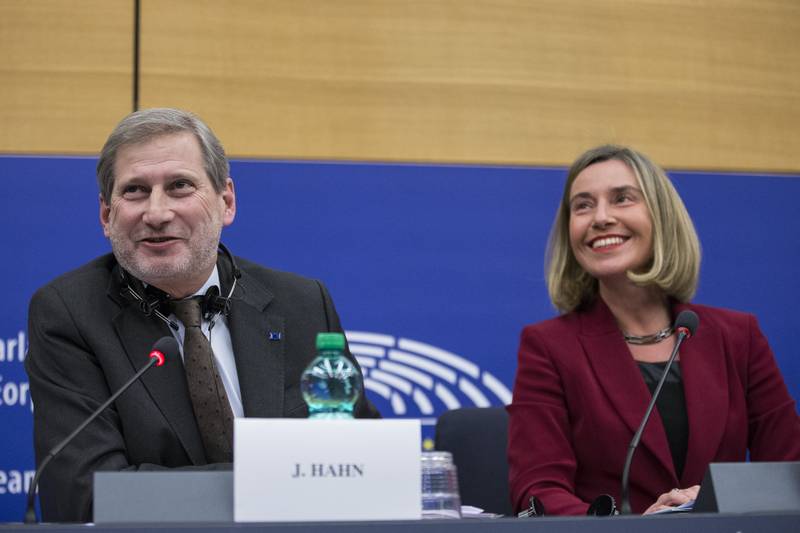 For the first time, the vision of the European Union for future enlargements acquires a complete and comprehensive look. The strategy outlined on February 6 is the first truly meaningful document that finally made a link between expanding outward and absorbing it inside. The document is as targeted at aspirants for European membership as at the EU itself and some of its hesitant members. There are many new things in the strategy, some of which have long been due. The most important thing, however, is that it is clear, frank and thorough. In this sense, the document actually shows the countries of the Western Balkans that the region is important to the EU, but that the path to membership is only one. The strategy is that "take it-or-leave" moment for the EU and the Western Balkan countries. A warning to the political leaders in the area.
For the first time, the vision of the European Union for future enlargements acquires a complete and comprehensive look. The strategy outlined on February 6 is the first truly meaningful document that finally made a link between expanding outward and absorbing it inside. The document is as targeted at aspirants for European membership as at the EU itself and some of its hesitant members. There are many new things in the strategy, some of which have long been due. The most important thing, however, is that it is clear, frank and thorough. In this sense, the document actually shows the countries of the Western Balkans that the region is important to the EU, but that the path to membership is only one. The strategy is that "take it-or-leave" moment for the EU and the Western Balkan countries. A warning to the political leaders in the area.
The document shows that the Union is finally mature for what it is, and that makes the approach significantly easier for those who wish to be a part of it. The document very clearly and unambiguously shows to the candidates that the "we are pretending that we are joining, and they are pretending to believe us" game is over. Despite the overall good sense of the strategy, it has a very significant flaw - it is unfair in terms of reconciliation and settlement of bilateral disputes that have been inherited from the breakup of Yugoslavia, which have been poisoning the stability of the region for years.
A prenuptial agreement between the EU and the Western Balkans
The thing that immediately leaves an impression in the long-awaited document is that Turkey is excluded from the future enlargement plans of the Union. This is no longer just a strategy for enlargement, but, as the title of the document itself says, "A credible enlargement perspective for and enhanced EU engagement with the Western Balkans." Much water has flown under the bridge in recent years in the enlargement process. A lot of time was wasted and a lot of mistakes were made. The expansion strategies so far were partial, too technical and non-binding. The new document is a radical change in comparison to former ones. It gives the candidate states a last chance to decide what they really want.
For the first time, the EU has committed itself to participate adequately in this sort of prenuptial agreement, which is offered for signature to both the six Western Balkan countries (WB6) and the member states. The document is divided into two parts. The first contains an analysis of the state of the WB6 and sets out very specific measures to be taken by them. The second part contains the EU's commitments to prepare for the new enlargement, both institutionally and financially. The deadline for marriage is the year 2025.
The date is a very key and multi-layered element in the whole strategy. As euinside wrote, this is the deadline for completing the overall reform of the Union. By that year, the Union must complete the deepening of integration in the euro area, the Schengen reform, to find a solution to the problem of solidarity in every aspect, including the migration issue, change entirely the philosophy of the common budget, which includes a eurozone budget as well, to complete the institutional changes - the composition of the European Parliament, the change of the voting method in the Council (moving from unanimity to a qualified majority).
Integration in the area of defence is also in a "full-ahead" mode, there is more and more talk about common foreign policy, and the change in trade policy is already a fact. All this makes the task of the candidates incomparably more difficult than it was in any of the previous waves of enlargement. That is why the European Commission, at the very beginning of the document, states quite frankly: "Our Union must be stronger and more solid, before it can be bigger." This year, the Commission will publish a series of proposals to improve the democratic and institutional framework of the Union by 2025. One of the most important documents this year will be the new mechanism for preserving the rule of law and European values, which is expected to be presented in October.
"Being a member of the European Union means accepting and promoting its values", is written in the strategy. The new mechanism will apply to all and will be part of the accession treaties of the new member states when they manage to prepare. This is perhaps the biggest news in the whole strategy as it shows that the EU finally admits that it cannot demand things from candidates, which it cannot demand from its members. This is a huge step forward in the Union's self-awareness.
The strategy is full of learned lessons on both sides of the border. "Joining the EU is far more than a technical process. It is a generational choice, based on fundamental values, which each country must embrace more actively, from their foreign and regional policies right down to what children are taught at school." This paragraph is one of the most significant in the strategy and shows that the EU has learned lessons from all enlargements so far, but has also understood what the biggest challenges for WB6 are. The crisis in the eurozone, the migration crisis and the populist crisis are the three most shocking events in the EU that have made it aware that enlargement is not just a geo-political unification of territories but a deep integration process that has a cultural, social and economic dimension.
The euro crisis showed that the Union had been significantly integrated both financially and economically, but it had not matured enough to recognise this and support integration with the relevant institutions and instruments. The migration crisis revealed another institutional flaw - the Union had abolished borders, secured the free movement of people, but did not think it meant common external borders requiring common protection, as well as common foreign policy. And the populist crisis has, in turn, revealed how fragile the values are, and how quickly an alternative can be found that undermines the Union's liberal foundations and that threatens its very existence.
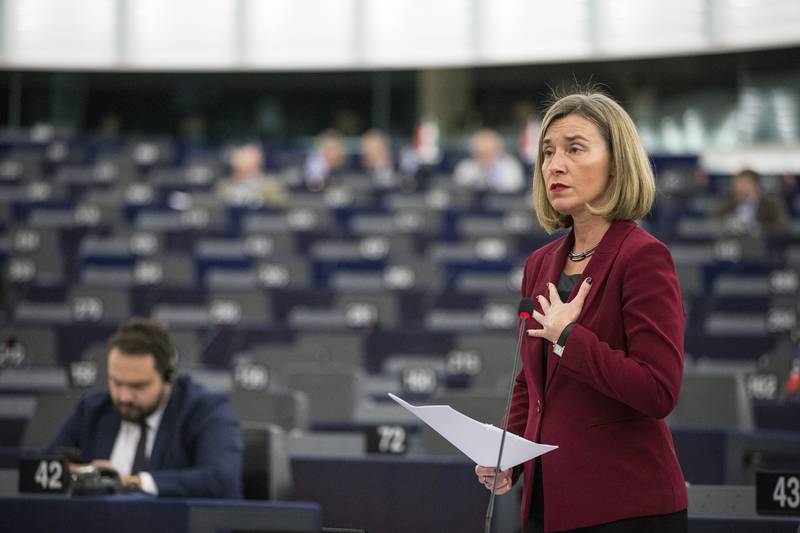 So, 2025 is a conditional date, which applies more to the EU itself than to the candidate countries. It has another task as well - to put a certain horizon on the candidates, a fishing rod for their populist elites and the citizens themselves to catch. The former to be able to continue to govern in piece, and the latter to slowly begin to imagine membership and perceive it as something more real than it is now. The strategy recognises that the date is too ambitious even for the most technically advanced countries. The Commission claims, though, that it is still realistic. Theoretically, if leaders in these countries suddenly decide to change themselves overnight, it is not impossible to make a huge step. Given the magnitude of the required transformation, however, 2025 seems rather unrealistic.
So, 2025 is a conditional date, which applies more to the EU itself than to the candidate countries. It has another task as well - to put a certain horizon on the candidates, a fishing rod for their populist elites and the citizens themselves to catch. The former to be able to continue to govern in piece, and the latter to slowly begin to imagine membership and perceive it as something more real than it is now. The strategy recognises that the date is too ambitious even for the most technically advanced countries. The Commission claims, though, that it is still realistic. Theoretically, if leaders in these countries suddenly decide to change themselves overnight, it is not impossible to make a huge step. Given the magnitude of the required transformation, however, 2025 seems rather unrealistic.
It could become more real if the EU itself is able to carry out its part of the transformation that will lead to a multi-speed EU. Then it will be possible, in 2025, for the not fully transformed countries to join in the hopes of continuing their transformation in a looser circle. And if they want to join the core (the eurozone, PESCO, the common prosecutor's office and other areas created through the enhanced cooperation procedure), they will have to complete the transformation entirely.
Enlargement number 8: mission (im)possible?
With the admission of Bulgaria and Romania to the EU unprepared, with the superficial and hastily designed Cooperation and Verification Mechanism, which was supposed to be a safeguard, the EU learned a very bitter lesson. It was further aggravated when Hungary and Poland set off on the illiberal path, and began to erode the fragile rule of law built enthusiastically in the romantic period of Europe after the fall of the Berlin Wall. This has shown that the process is reversible, which makes the mission of further enlargement closer to the impossible than to the possible.
What is the diagnosis of WB6 7 years before 2025 and 15 years after Thessalonнki?
What the Commission sees in the WB6 is "clear elements of state capture, including links with organised crime and corruption at all levels of government and administration, as well as a strong entanglement of public and private interests. All this feeds a sentiment of impunity and inequality", writes in the diagnostic part of the strategy. Also recognised is the considerable political interference and control over the media and the judiciary. The rule of law has been a priority for the Commission since 2012, when the first significant, but from the point of view of the challenge a cosmetic, change in the approach putting the rule of law first. In all subsequent strategies, it has repeatedly been emphasised that the rule of law is a fundamental and that fundamentals come first, before everything else. This claim, however, remained unsupported by additional conditionality and the process gradually reached the point of freezing.
With its strategy of 6 February 2018, the Commission is now considerably more specific, and this part of the document is very similar to the Cooperation and Verification Mechanism, and is even better as an attempt has been made to correct the mistakes in it. With regard to the fight against corruption, candidate countries are required to set up independent specialised prosecution offices to fight corruption and organised crime, as well as specialised judicial bodies. Specialised police units should be assigned to them. Measures to confiscate illegally acquired assets must also be taken as well as to ensure loss of right to hold a public office in case of suspicion of corruption.
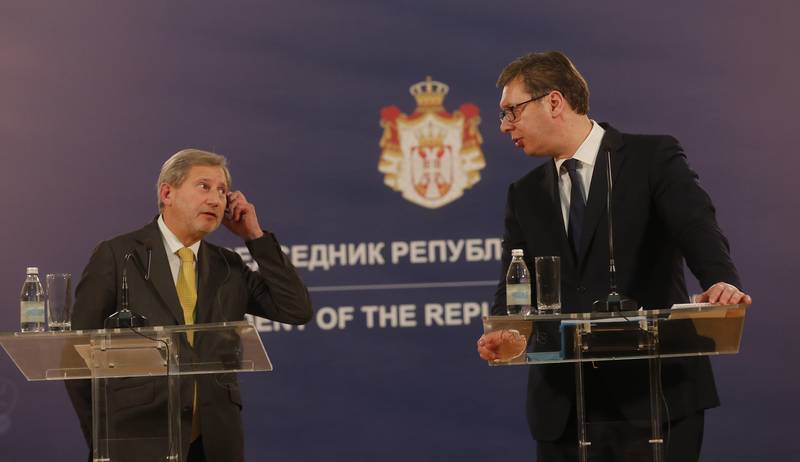 Candidate countries are expected to set up e-procurement platforms, eliminating any possibility to conduct confidential procedures that are commonplace in the region. The Commission finds that organised crime has possessed the Western Balkans not only in terms of trafficking in human beings, drugs and weapons, but there is already a risk of criminal penetration in the political and economic systems. Therefore, the authorities are expected to fully disarm criminal networks by conducting systematic financial investigations and implementing more targeted instruments such as the freezing of proceeds from criminal activity, seizure without sentence in cases of unexplained wealth, and imposing a requirement for full disclosure of company ownership.
Candidate countries are expected to set up e-procurement platforms, eliminating any possibility to conduct confidential procedures that are commonplace in the region. The Commission finds that organised crime has possessed the Western Balkans not only in terms of trafficking in human beings, drugs and weapons, but there is already a risk of criminal penetration in the political and economic systems. Therefore, the authorities are expected to fully disarm criminal networks by conducting systematic financial investigations and implementing more targeted instruments such as the freezing of proceeds from criminal activity, seizure without sentence in cases of unexplained wealth, and imposing a requirement for full disclosure of company ownership.
To ensure that these recommendations are not only fulfilled on paper, the Commission is planning enhanced monitoring of implementation. More and more serious reviews will be organised by the EC with the participation of experts from the member states. Monitoring of the most serious corruption and organised crime trials will also be introduced. Progress in judicial reform will be measured by its effectiveness in bringing justice to citizens and business. Another novelty in the strategy is something that euinside has recently proposed - blocking the negotiation process until concrete results are achieved in judicial reform and the fight against corruption and organised crime. euinside has proposed blocking the opening of new chapters, and the EC offers blocking the closure of already open chapters. In this way, the EC keeps the opening of chapters as a reward tool. This will be the carrot.
In addition, the EU will engage the WB6 much more actively in the work of the Union in the areas identified as most important for their preparations for EU membership: justice and home affairs, security and the fight against organised crime, the economy and the single market, energy, transport and digital policy, social policy, education, research and development, foreign affairs and defence. Countries will be invited to participate more often in informal Councils and will have regular ministerial contacts. This had to be done a long time ago to avoid situations where candidate countries have no idea what the EU is, as shown by the assertion by Serbian President Alexander Vučić last year that he does not know that the EU is developing its own defence.
Transformation starts with education!
In the spirit of the beginning of the strategy, which states that EU accession is a generational choice but it is actually a civilisational one, the document calls for education to be highlighted as a top priority. Candidate countries are expected to work towards building greater tolerance, enforcing European values and bringing together society. This is not only a part of the preparations for EU membership, but also a tool to cope with the legacy of the region's past. "The Western Balkans should invest more in their younger generation, our future EU citizens, and give them a perspective for the future, not the past," the strategy says.
This requirement is another part of EU's maturing. At the end of last year, education was raised for the first time at the level of leaders. At the December Summit, conclusions were adopted regarding the need to build a European identity through education and culture, which is unprecedented throughout the history of the Union. This was at the insistence of French President Emmanuel Macron, for whom education is a central national, European and foreign policy goal. The WB6 are expected to increase investment in education, including training and retraining. For its part, the EU will double the funding of the Erasmus + student exchange program. A pilot scheme for the mobility of teachers and educators from and to the region is also envisaged.
The EU retains the double standard in bilateral disputes
Everything is very good in the strategy until there is a need for a real commitment of the EU to the WB6. National veto over the accession process has lain as the Sword of Damocles over the expansion policy for decades. A country, even as miniature as Slovenia, or as seismic as Greece, can cause a slowdown in the whole process, with all the consequences for the region as a whole. The multiple 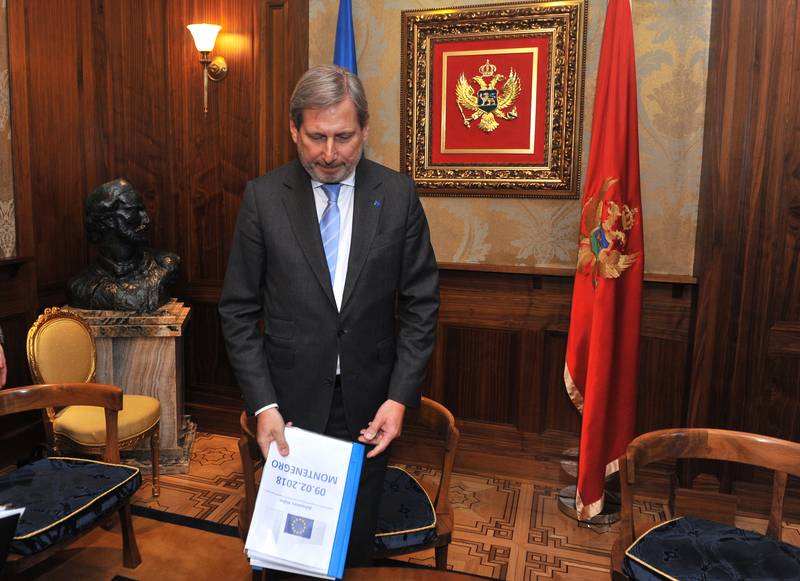 blocking by Slovenia of Croatia's accession has in fact led to them importing their unresolved border disputes into the EU - a problem which the Union cannot fight from within.
blocking by Slovenia of Croatia's accession has in fact led to them importing their unresolved border disputes into the EU - a problem which the Union cannot fight from within.
The Slovenian veto failed to fully block Croatia's accession but showed that border disputes could affect the smooth functioning of Schengen, even its expansion, or simply fuelling local tensions. However, the Greek veto had far more serious consequences. It brought Macedonia back decades, and last year there was even a danger of an ethnic conflict in the former Yugoslav republic. Against the backdrop of the amount and depth of unresolved bilateral issues, the Croatian-Slovenian border dispute is completely harmless. There are dozens of unresolved border, property and social disputes. Problems with missing people during the war, prosecution of war crimes, the struggle with nationalism, hate speech, the rewriting of history, the monuments game are all problems with explosive potential.
Nevertheless, the EU declares neutrality by saying that "regional co-operation, good neighbourly relations and reconciliation cannot be imposed from outside. The leaders of the region must take full ownership and lead by example." The allegation is extremely unfair, considering that vetoing in practise is an interference from the outside. Moreover, the involvement of member states in specific disputes makes things internal to the EU, not external.
The EC has written what needs to be done to make progress: to avoid and condemn any statements or actions that fuel inter-ethnic tensions and actively fight nationalist rhetoric. "There is no place in the EU for inflammatory rhetoric, let alone for glorification of war criminals from any side." But there is no commitment, although it is precisely this problem that poisons the European integration path of some of the most troubled countries in the region.
Croatia is currently the country with the most unresolved border issues with WB6 countries. It could at any time take advantage of its membership to block their accession with entirely domestic objectives, regardless of committing to not do to candidate states what had been done to her. But the nationalistic temperature changes with almost the same dynamics as climate change, so it's not a guarantee.
The strategy also reserves Spain (as well as others) the right of veto over a future solution to the Kosovo problem. The EU has repeatedly recognised that blocking enlargement is detrimental to common European interests, but this did not find place in the strategy, and therefore no commitment is made to resolve this problem. At the same time, the EC requires candidates to make irrevocable commitments that when they become members they will not block the joining of other candidates from the region. The most strained issues in the region are the status of Kosovo and the situation in Bosnia and Herzegovina, although both are interconnected and have a common denominator - Serbia. In Bosnia and Herzegovina, however, Croatia also has influence, being a member of the EU, Russia through Serbia and Republika Srpska, Turkey.
Foreign policy is becoming a mandatory condition
Serbia, Croatia and ethnic leaders in BiH are looking for a solution to their narrow national interests abroad - in Turkey and Russia, but not in the EU, and this directly affects the Union's foreign policy interests. The strategy requires the WB6 to speed up its alignment with all EU foreign policy positions, including restrictive measures. Russia is not explicitly mentioned, but it is a significant progress that sanctions are mentioned, which makes things much more unambiguous. "Joining the EU is a choice, and one that requires sharing the principles, values and goals the Union seeks to promote in its neighbourhood and beyond, including full alignment with the common foreign and security policy," is noted in the document.
The WB6 is also expected to participate more actively in EU missions and operations around the world, including action to combat hybrid threats, intelligence, space, defence and security. This is another de facto ultimatum that the strategy sends to the region, which requires an end to playing with alternatives to the EU, masked in the form of old friendly, orthodox, fraternal and all other relations with hostile to the EU third parties. Although the EU's common foreign policy is still rudimentary, there is already a commitment to changing it.
There is a change in the EU's trade policy that relies on reciprocity and extends the scope to cover wider areas such as democratic standards, human rights and environmental commitments. In other areas, however, the division in the EU is still high. Until recently, the Union had a hard time maintaining its unity in regards to Russia, but it was for the first time agreed at the December European Council to continue the sanctions completely unanimously and without any debate. However, this does not mean that the member states have a similar attitude towards Russia. It continues to be a strong dividing factor.
China is also a dividing factor with its 16+1 format, which includes all the South East EU member states, and the WB6 countries. This is causing discomfort and dissatisfaction with old members who see China as a partner but also a threat. There is also an ostensible unity in the EU with regard to the Israeli-Palestinian conflict. Also in December, the leaders adopted conclusions confirming that Jerusalem is still part of the two states/one capital solution, but some member states chose to abstain from voting in the UN, apparently in an attempt to maintain a warm relationship with the US administration of President Donald Trump. All this shows that foreign and security policy is still far from common. That is why the 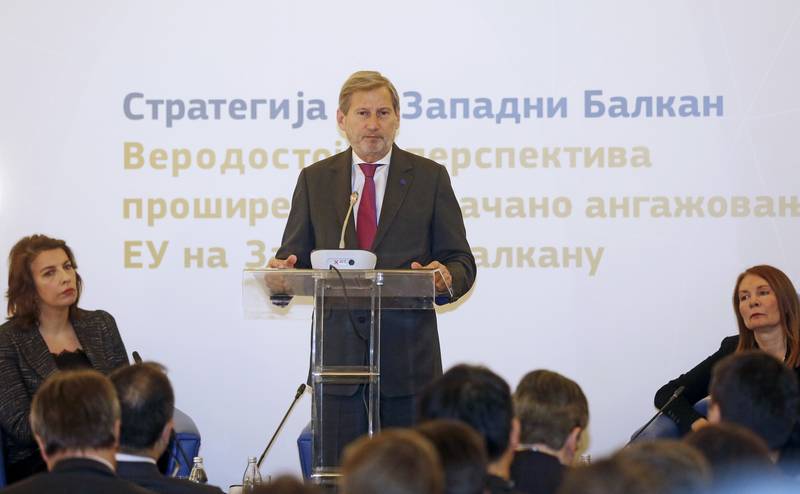 requirement for the WB6 to swiftly and decisively accept European foreign policy positions is justified, but makes the mission of accession even more difficult.
requirement for the WB6 to swiftly and decisively accept European foreign policy positions is justified, but makes the mission of accession even more difficult.
The new EC strategy for the Western Balkans is more of a strategy for the EU itself than for the region. It is a call to the WB6 to finally make their civilisational choices not only in words but also in deeds. The first reactions in the region show that the message is understood. But that still does not mean anything. Neither is 2025 a firm date, nor is it realistic to expect the leaders of the WB6 will suddenly become democrats and will begin to share European values. However, the document is a good basis for deepening relations between the EU and WB6. The extent to which it will be successful depends on what the EU will be able to do with its own self and what the WB6 will be able to do from what is required of them. All this will develop in an atmosphere of significant global shifts and influences.
 Bakir Izetbegovic, Andrej Plenkovic | © Council of the EU
Bakir Izetbegovic, Andrej Plenkovic | © Council of the EU Aleksandar Vucic, Recep Tayyip Erdogan | © Serbian Presidency
Aleksandar Vucic, Recep Tayyip Erdogan | © Serbian Presidency Jean-Claude Juncker, Zoran Zaev | © European Commission
Jean-Claude Juncker, Zoran Zaev | © European Commission Federica Mogherini | © Council of the EU
Federica Mogherini | © Council of the EU | © Council of the EU
| © Council of the EU Luis De Guindos | © Council of the EU
Luis De Guindos | © Council of the EU